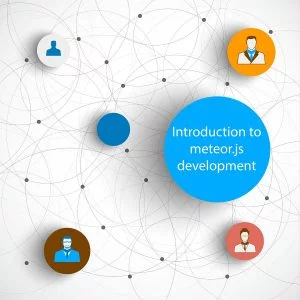
Add to wishlistAdded to wishlistRemoved from wishlist 0
Add to compare8.4/10
(Our Score)
Product is rated as #166 in category Web Development
Learn the basics of programming through HTML, CSS, and Python. Explore possible programming paths with our final project selection. Get confident in your ability to think and problem–solve like a programmer. Be primed and ready for our career–ready programs after mastering these projects.
Instructor Details
Votes: 0
Courses : 1
Specification: Introduction to Programming Online Course
|
12 reviews for Introduction to Programming Online Course
5.0 out of 5
★★★★★
★★★★★
12
★★★★★
0
★★★★★
0
★★★★★
0
★★★★★
0
Write a review
Show all
Most Helpful
Highest Rating
Lowest Rating
Add a review Cancel reply
This site uses Akismet to reduce spam. Learn how your comment data is processed.

| Price | $716 |
|---|---|
| Provider | |
| Duration | 160 hours |
| Year | 2020 |
| Level | Beginner |
| Language | English |
| Certificate | Yes |

Introduction to Programming Online Course
$716.00






Greg C. –
Earlier this year, I decided that I was burned out in my current career as a tissue bank specialist (yes, it pays well… but the joke “I see dead people” is only clever the first 100 times you hear it). I wanted a new career and went through the myriad of choices I could choose from to pursue. Computers are a staple in my family, in fact, my grandfather worked for IBM for 35 years (and passed away at 92 this summer) and holds the original patent on magnetic disk drives. I like analytical thinking and problem solving, the job market is booming, I could perform this career in relative perpetuity (my current job can be VERY physical… don’t get me started on explaining how we use the deli slicer), and I could relocate or work remotely – all very important aspects I was reviewing. I began studying computer science this summer with some haphazard help from my brother and cousin who work as a UX developer and a Java programmer respectively. My brother shoved some books my way and said “you might start here.” One was an HTML book, the other CCS. I quickly learned that I hate web development and picked up a book in Python programming. I tried a couple of other online programs (codeschool I think was one), but the instruction was all over the place and didn’t tie ideas together cogently. I was just starting to learn Python when I found out that I didn’t get into the post–baccalaureate program that I wanted to enroll in. I promptly decided that it wouldn’t hold me back and I began digging into other methods of achieving my goal. I noticed something interesting on WGU’s (another CS school I was interested in) website that a nanogdegree from Udacity was an acceptable prerequisite for their program. I looked at Udacity and realized that they have a well–put–together program. I’m midway through the Intro to Programming nanodegree and I’m really excited about what I am learning. Sometimes, I feel that I could be moving faster with the content, but I noticed that there is a lot of emphasis placed on how things work in Python and in computers in general, which is something that I hadn’t seen in other resources. To me, this understanding is crucial. I also like the quizzes. Sometimes I wish there were even more, but they give me a little bit of interactive learning in good intervals. I recently was discussing my experiences with Udacity with a friend who works in tech support. Originally, he said it sounded like a scam. I sent him the company info and now he’s planning on starting a nanodegree as well – he was that impressed with the content and supporters of the programs. Looking back, I’m glad I didn’t get into the university program I had applied to. I know that I wouldn’t have gotten the level of understanding about the things I wanted to learn (which was a major issue I had with my first undergrad degree). I’m also saving close to $30K (more if you consider interest – probably closer to $50–60K), and can study at my own pace. I understand that being able to transition to a new career without a CS degree may be a little more challenging and take a little longer, but overall it’s a much wiser decision for me. I’m really excited about the last section of this nanodegree. I was really lost when I looked at all of the avenues that I could take in pursuing a new career in programming. It’s really helpful to get my feet wet in a few different types of programming and compare my experiences with industry needs and income expectations! Thank you so much guys!
Yodit F. –
This course generally is great! But I want to make something very clear for those who are novice in programming. It certainly needs a lot of hard works in reading through many information. This includes not only the instructor’s videos and manuals, but also many more links of information from reading through discussion forum, referred from mentors, posted summary notes, and recorded videos. In my case, I have input a lot of time in it and much more than just 20 hours a week. But because I have interest in programming and liked this course, I was enjoying doing it. There are times where things seems to be frustrating and impossible, but the key is to look up, be at rest and in peace, and realize that all information needed is right there (sources mentioned above). The great resource I have found for most of the questions I had was the discussion forum. If I couldn’t get any answer from there, then my 2nd option always was posting my questions on the forum. The mentors and couches are excellent and very prompt to answer all your questions and usually they will go extra giving you more information using links. So I didn’t need to have a 1–2–1 appointment at all. In my opinion, practicing and doing all in the instruction manuals every day is a must to be successful in gaining real knowledge and programming skill. Also, whenever I had any technical issue or general question in locating something, the technical staffs were very prompt in providing the needed information by responding to my e–mail. Finally, for students who have a plan to take this course, my advice to them is to make themselves familiar with these programming languages (HTML, CSS, java script, python) in advance. Thank a lot Udacity!
Matthew R. –
Completed in 5 months (20+ hours a week, I chose the back end developer final project. Money back Policy/answer to the question you are most likely worrying/wondering about: You will get 50% of your money back (within 8 weeks of graduating) if you have completed the course within 12 months, exception is if the company you are working for pays for your degree (no money back, I’m guessing since it is an exception). Overall: great introduction for beginner programmers; I had been researching and studying Python (watched at least 40 videos on Youtube) and Java (watched at least 50 videos on Youtube) before taking this nano–degree (personally I don’t like being unprepared). If you are new (or if you have some programming experience, I highly recommend), you must go on Youtube and watch David Malan’s (Harvard professor of Computer Science) Introduction to Computer Science series to get a sense of what your computer is before you start. Trust me, as a fellow graduate I’m trying to help you on a smoother path. This will give you a deeper understanding of what your computer does when interacting with a programming language before you start questioning all the fundamentals. However, Udacity does a good job of getting you up to speed. The difficulty grows steadily from project to project with the exception of the last project, which took me an extra month to complete. Was aiming for 4 months (20+ hours a week) but it took me 5 months. If you are brand new, expect at least 5–6 months (20+ hours a week) to complete. I wish you the best, below there is a helpful link. (copy and paste it into a new tab) Helpful link: David Malan’s lecture 0: https://www.youtube.com/watch?v z–OxzIC6pic
John M. –
Udacity’s Intro to Programming Nanodegree (IPND) is an exceptional way to learn how to programming: Pro’s: * Practical approach: real sense that Udacity wants every student to become an employable programmer * Effective: well thought–out curriculum, which (so far) builds up the student’s confidence with a good mixture of (video) “lecture”, text notes, follow–along examples, and do–it–yourself. Some theory, but focus on practical. * Self–paced: the do–it–yourself builds confidence one step at a time, but is not so simple to be boring. * Good help: weekly office hours and good support. * Individual attention: it’s clear that the Reviewers go through students’ code line–by–line, offering helpful feedback in comments. * Clean, easy–to–use online ‘classroom’: basically, you follow a “path”, which is the course syllabus and clearly shows the key deliverables at each Stage (there are five stages). * Breadth and practical depth. (Caveat: as an Intro student, by definition I don’t know what I don’t know, but here’s my impression). I like that the IPND covers a practical breadth of topics, with enough depth in each to be useful.. HTML, CSS, Python, and then you get to choose where to focus for Stage 5 (API’s, Javascript, Responsive…) Cons: * I think Udacity could do a better job fostering a sense of community within a Cohort. * The historic Office Hours videos are useful, but it would be nice to be able to flag information that is outdated (content evolves from 2015 to 2016 versions, so the answers are no longer accurate, in some cases).
Vincenzo A. –
I currently work as a scientist at a major food and beverage company and wanted to dive deep into coding to expand my skill set. In college I began as a CompSci major and have always had a passion for coding. I’ve taken other udacity courses and they were top notch so I decided to enroll in the Intro To Programming nanodegree. The experience so far has been excellent! One great thing I’ve noticed is that here at udacity they really emphasize how to actually think as a programmer. The instructors are top notch, and the format is clear, concise, and relevant. The code reviews for projects are super–detailed, and I really want to thank my reviewers for putting in the time to correct my mistakes and teach me how to be a better programmer. Although I do have previous coding experience in C, Python, I had never used HTML or CSS. Within the first two weeks, I was stoked to be able to create an html site that actually looked pretty good! I’ve never been the super artistic type (although I love music) but I really enjoyed the artistic element of creating and styling a site with CSS from scratch. I highly recommend this nanodegree to anyone who is looking for an introduction to programming. I’ve already decided that once I finish this nanodegree I’m enrolling for another right away!
James L. –
Highly recommended for students new or relatively new to programming. Your computer illiterate could take this course and become better coders than many undergraduates. If you’ve taken a few semesters of computer science courses or have a little bit of practical experience with programming, I’d suggest to attempt finishing the course materials on trial. Project 1 is about building a simple webpage with html and css. Project 2 is the typical intro to programming project mainly testing your knowledge of functions (in Python) and loops. Project 3 is about classes (with a ridiculously easy project that should take most people 10–15 minutes). The final project in the full–stack path is basically writing a few lines of sql (and is barely longer/harder than project 3). My biggest advice for the students who like to go the extra mile, is don’t. Don’t look at extreme cases. Don’t attempt to include any additional features. Just don’t! I spent 8 hours on project 0 trying to implement certain features without looking anything up. In reality, I had met the requirements at the 30 minute mark. If your program meets all the specifications, just submit.
Greg C. –
Earlier this year, I decided that I was burned out in my current career as a tissue bank specialist (yes, it pays well… but the joke “I see dead people” is only clever the first 100 times you hear it). I wanted a new career and went through the myriad of choices I could choose from to pursue. Computers are a staple in my family, in fact, my grandfather worked for IBM for 35 years (and passed away at 92 this summer) and holds the original patent on magnetic disk drives. I like analytical thinking and problem solving, the job market is booming, I could perform this career in relative perpetuity (my current job can be VERY physical… don’t get me started on explaining how we use the deli slicer), and I could relocate or work remotely all very important aspects I was reviewing. I began studying computer science this summer with some haphazard help from my brother and cousin who work as a UX developer and a Java programmer respectively. My brother shoved some books my way and said “you might start here.” One was an HTML book, the other CCS. I quickly learned that I hate web development and picked up a book in Python programming. I tried a couple of other online programs (codeschool I think was one), but the instruction was all over the place and didn’t tie ideas together cogently. I was just starting to learn Python when I found out that I didn’t get into the post baccalaureate program that I wanted to enroll in. I promptly decided that it wouldn’t hold me back and I began digging into other methods of achieving my goal. I noticed something interesting on WGU’s (another CS school I was interested in) website that a nanogdegree from Udacity was an acceptable prerequisite for their program. I looked at Udacity and realized that they have a well put together program. I’m midway through the Intro to Programming nanodegree and I’m really excited about what I am learning. Sometimes, I feel that I could be moving faster with the content, but I noticed that there is a lot of emphasis placed on how things work in Python and in computers in general, which is something that I hadn’t seen in other resources. To me, this understanding is crucial. I also like the quizzes. Sometimes I wish there were even more, but they give me a little bit of interactive learning in good intervals. I recently was discussing my experiences with Udacity with a friend who works in tech support. Originally, he said it sounded like a scam. I sent him the company info and now he’s planning on starting a nanodegree as well he was that impressed with the content and supporters of the programs. Looking back, I’m glad I didn’t get into the university program I had applied to. I know that I wouldn’t have gotten the level of understanding about the things I wanted to learn (which was a major issue I had with my first undergrad degree). I’m also saving close to $30K (more if you consider interest probably closer to $50 60K), and can study at my own pace. I understand that being able to transition to a new career without a CS degree may be a little more challenging and take a little longer, but overall it’s a much wiser decision for me. I’m really excited about the last section of this nanodegree. I was really lost when I looked at all of the avenues that I could take in pursuing a new career in programming. It’s really helpful to get my feet wet in a few different types of programming and compare my experiences with industry needs and income expectations! Thank you so much guys!
Yodit F. –
This course generally is great! But I want to make something very clear for those who are novice in programming. It certainly needs a lot of hard works in reading through many information. This includes not only the instructor’s videos and manuals, but also many more links of information from reading through discussion forum, referred from mentors, posted summary notes, and recorded videos. In my case, I have input a lot of time in it and much more than just 20 hours a week. But because I have interest in programming and liked this course, I was enjoying doing it. There are times where things seems to be frustrating and impossible, but the key is to look up, be at rest and in peace, and realize that all information needed is right there (sources mentioned above). The great resource I have found for most of the questions I had was the discussion forum. If I couldn’t get any answer from there, then my 2nd option always was posting my questions on the forum. The mentors and couches are excellent and very prompt to answer all your questions and usually they will go extra giving you more information using links. So I didn’t need to have a 1 2 1 appointment at all. In my opinion, practicing and doing all in the instruction manuals every day is a must to be successful in gaining real knowledge and programming skill. Also, whenever I had any technical issue or general question in locating something, the technical staffs were very prompt in providing the needed information by responding to my e mail. Finally, for students who have a plan to take this course, my advice to them is to make themselves familiar with these programming languages (HTML, CSS, java script, python) in advance. Thank a lot Udacity!
Matthew R. –
Completed in 5 months (20+ hours a week, I chose the back end developer final project. Money back Policy/answer to the question you are most likely worrying/wondering about: You will get 50% of your money back (within 8 weeks of graduating) if you have completed the course within 12 months, exception is if the company you are working for pays for your degree (no money back, I’m guessing since it is an exception). Overall: great introduction for beginner programmers; I had been researching and studying Python (watched at least 40 videos on Youtube) and Java (watched at least 50 videos on Youtube) before taking this nano degree (personally I don’t like being unprepared). If you are new (or if you have some programming experience, I highly recommend), you must go on Youtube and watch David Malan’s (Harvard professor of Computer Science) Introduction to Computer Science series to get a sense of what your computer is before you start. Trust me, as a fellow graduate I’m trying to help you on a smoother path. This will give you a deeper understanding of what your computer does when interacting with a programming language before you start questioning all the fundamentals. However, Udacity does a good job of getting you up to speed. The difficulty grows steadily from project to project with the exception of the last project, which took me an extra month to complete. Was aiming for 4 months (20+ hours a week) but it took me 5 months. If you are brand new, expect at least 5 6 months (20+ hours a week) to complete. I wish you the best, below there is a helpful link. (copy and paste it into a new tab) Helpful link: David Malan’s lecture 0: https://www.youtube.com/watch?v z OxzIC6pic
John M. –
Udacity’s Intro to Programming Nanodegree (IPND) is an exceptional way to learn how to programming: Pro’s: * Practical approach: real sense that Udacity wants every student to become an employable programmer * Effective: well thought out curriculum, which (so far) builds up the student’s confidence with a good mixture of (video) “lecture”, text notes, follow along examples, and do it yourself. Some theory, but focus on practical. * Self paced: the do it yourself builds confidence one step at a time, but is not so simple to be boring. * Good help: weekly office hours and good support. * Individual attention: it’s clear that the Reviewers go through students’ code line by line, offering helpful feedback in comments. * Clean, easy to use online ‘classroom’: basically, you follow a “path”, which is the course syllabus and clearly shows the key deliverables at each Stage (there are five stages). * Breadth and practical depth. (Caveat: as an Intro student, by definition I don’t know what I don’t know, but here’s my impression). I like that the IPND covers a practical breadth of topics, with enough depth in each to be useful.. HTML, CSS, Python, and then you get to choose where to focus for Stage 5 (API’s, Javascript, Responsive…) Cons: * I think Udacity could do a better job fostering a sense of community within a Cohort. * The historic Office Hours videos are useful, but it would be nice to be able to flag information that is outdated (content evolves from 2015 to 2016 versions, so the answers are no longer accurate, in some cases).
Vincenzo A. –
I currently work as a scientist at a major food and beverage company and wanted to dive deep into coding to expand my skill set. In college I began as a CompSci major and have always had a passion for coding. I’ve taken other udacity courses and they were top notch so I decided to enroll in the Intro To Programming nanodegree. The experience so far has been excellent! One great thing I’ve noticed is that here at udacity they really emphasize how to actually think as a programmer. The instructors are top notch, and the format is clear, concise, and relevant. The code reviews for projects are super detailed, and I really want to thank my reviewers for putting in the time to correct my mistakes and teach me how to be a better programmer. Although I do have previous coding experience in C, Python, I had never used HTML or CSS. Within the first two weeks, I was stoked to be able to create an html site that actually looked pretty good! I’ve never been the super artistic type (although I love music) but I really enjoyed the artistic element of creating and styling a site with CSS from scratch. I highly recommend this nanodegree to anyone who is looking for an introduction to programming. I’ve already decided that once I finish this nanodegree I’m enrolling for another right away!
James L. –
Highly recommended for students new or relatively new to programming. Your computer illiterate could take this course and become better coders than many undergraduates. If you’ve taken a few semesters of computer science courses or have a little bit of practical experience with programming, I’d suggest to attempt finishing the course materials on trial. Project 1 is about building a simple webpage with html and css. Project 2 is the typical intro to programming project mainly testing your knowledge of functions (in Python) and loops. Project 3 is about classes (with a ridiculously easy project that should take most people 10 15 minutes). The final project in the full stack path is basically writing a few lines of sql (and is barely longer/harder than project 3). My biggest advice for the students who like to go the extra mile, is don’t. Don’t look at extreme cases. Don’t attempt to include any additional features. Just don’t! I spent 8 hours on project 0 trying to implement certain features without looking anything up. In reality, I had met the requirements at the 30 minute mark. If your program meets all the specifications, just submit.